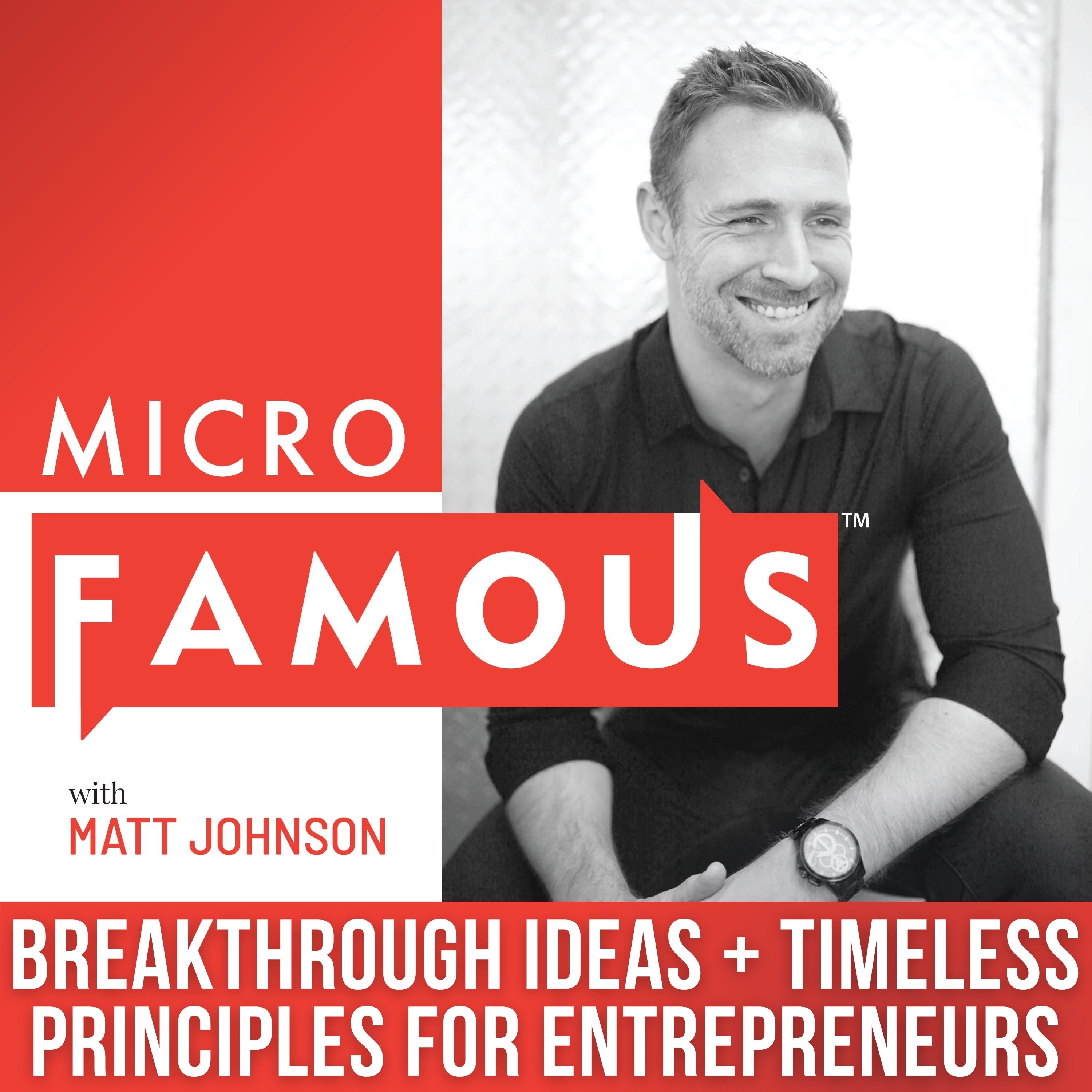Puffery & Labels: Do We Call Ourselves an Expert?
Description
I sent out an email asking for some tough questions for the podcast, and I got some amazing ones. I wanted to answer a great one today in the show.
The question comes from Jim, “How can I be recognized and paid as an expert, without calling myself an expert, guru, genius or other nonsense.”
So I want to give some practical examples where it’s easy to stray into puffery and hype without even realizing it, because we see so much of this everyday in the coaching and consulting world.
When it comes to puffery, I learned a great rule of thumb from Frank, my mentor at my last agency, who I had on the show last week.
Here’s the Rule: Make Zero Claims the Reader Could Disagree With.
This means we drop any adjectives or other types of language that don’t keep the reader shaking their head Yes as they read. Anything that makes them go, “I don’t know about that..” needs to be examined and potentially removed.
As Seth Godin says, the web is incredibly distrustful. People don’t know what or who to believe. So showing up and claiming that you’re more of an expert or guru than others isn’t helping you like you might think. It’s creating resistance and raising suspicion because you’re saying something they can’t verify. Why are you having to talk yourself up?
I want to give you some examples because this can be hard to grasp at first, but once you see this kind of puffery, you’ll see it everywhere. Let’s look at John Maxwell’s site, where he is described as “#1 New York Times bestselling author and world-renowned leadership expert.”
Sounds fine at first, but look closer.
Out of the 3 elements in that statement, only ONE is a verifiable fact. The other two elements are opinions at best, and one is definitely puffery.
What does “world-renowned'' mean, and whose opinion is that? What about leadership “expert.” Certainly if you know John Maxwell and have read his books on leadership, you’d agree that he’s a leadership expert.
But if you hadn’t heard of him and were reading this for the first time, would you nod your head along in agreement? Of course not.
So if we do this in our marketing, especially in the things people see when they come across us for the first time, we’re just creating resistance.
So what would I put on the website if I were in charge of John Maxwell’s marketing?
“#1 New York Times bestselling author and International Speaker on the Subject of Leadership”
You could also say something like “America’s Leadership Expert” as long as there were other forms of proof nearby. We’ll touch on that later.
The point here is that John Maxwell gets paid for what he IS, not what he claims to be.
One way I follow through on this is that I call myself an author, not a “bestselling” author.
What does best-selling even mean? Best-selling according to who?
That’s become so abused in this space that I don’t use it. I call myself an author. I have a book on Amazon, you can literally see a picture of the big on the front page of my website. It’s not something a reader can disagree with. Now, if you hit #1 on the New York Times best-seller list, feel free to tell us. That’s a verifiable fact, and it leads us to another rule of thumb.
If You Must Make a Claim that the Reader Could Disagree With, Let Someone Else Say It.
When the New York Times says you’re a best-seller, people say, “wow that’s impressive.” It’s a credible third party saying you are a best-selling author, not an unverifiable claim coming from you.
Another example of this is with expert or ninja or guru or all those other words.
The best way to lay claim to that title is to let someone else say it. Grab a testimonial where someone calls you a master of your craft, an expert at what you do, and use that in your marketing.
I call myself a pod
More Episodes
For creative entrepreneurs, there’s always a tension between the creative projects we want to undertake, and the need to make it easy for people to understand the niche we fit into.
It doesn’t make sense for us to be everything to everyone, but niching down is challenging because it feels like...
Published 06/02/22
Published 06/02/22
Joe Rogan is the exception that proves the rule.
For every 3 hour episode of Joe Rogan, there's a podcast that is shortening up their average episode.
And rightfully so, I think.
We're going on 10+ years of long-form interview podcasts, and the format itself is no longer rare and...
Published 05/19/22


